Although they acknowledge the intensification of anti-Hungarians, the Romanian interviewed experts also declare the Hungarians of the events in the Valea Uzului responsible. Sociologist Vladimir Ionaş, UNESCO historian and ambassador Adrian Cioroianu and political scientist Andrei Ţăranu found the solution in the consolidation of the dialogue, and all three agree that the cold war is excluded in the Romanian-Hungarian interstate relationship.
On the basis of the interview taken by the Krónika newspaper, Romanian experts say that it is obvious that the relationship between the Hungarian minority and the Romanian majority has deteriorated after the cave events in the Valea Uzului, but through dialogue can find a solution to resolve these misunderstandings. Vladimir Ionaş, sociologist at the Avangarde Socio-Behavioral Studies Group, said that interethnic relations had become tense at the political level in recent years, although Romania has been a model for interethnic relations for years.
“Many personalities have contributed to the current situation. First of all, Kelemen Hunor, whom I consider to be one of the best-prepared Romanian politicians, surprised me how he blindly believed in the implicit agreements with Liviu Dragnea and neglected the dialogue with the Romanian parties. The situation has become even worse after the PNL ruling, led by Ludovic Orban, according to which all DAHR parliamentary results will be appealed to the Constitutional Court and will try to prevent them. Here we have to mention the behavior of nationalist politicians. Also, the extremists from DAHR are not negligible “- stressed the expert, noting that the real dialogue between the two sides was completely lacking in the case of the Military Cemetery in the Valea Uzului.
We need proof
Ionaş believes that DAHR is aware that tensions can be best resolved through dialogue and negotiation. As he said there are few politicians on both sides who understand interethnic issues and recognize the importance of discussing each subject. The event in the Valea Uzului is an example. Both sides started to say that they were right and did not listen to each other. The attitude of both sides was terrible, mainly because neither party had absolutely right – said the sociologist in Bucharest. He stressed that there are solutions to the cemetery case, but the state institutions, especially the Ministry of National Defense, must show us clear evidence supported by the archive documents, and then we will see that there is excess on both sides. Vladimir Ionaş says that each hero cemetery should be managed by the Ministry of National Defense and not the mayoralties. He added that mutual understanding about Trianon is needed, which the two ethnic groups interpret completely differently.
“It is necessary for mutual understanding and respect. Anyway, we look forward to seeing who will start the next round, who will reject the respect for each other “- said the Avangarde expert.
Gang in the schoolyard
Historian Adrian Cioroianu considered important to emphasize: the events in the Valea Uzului are not incidents and not even conflict. “As a teacher, occasionally invited to schools, I can say that the events in the Valea Uzului are similar to the quarrel between two groups of boys in the schoolyard, each gang showing strength and masculinity. Of course, I do not want to tame things just because the whole story is full of artificial elements, but things do not have to be exaggerated. In this context, the use of plastic bags as a mask in a diplomatic manner is a controversial idea as well as the aggressive mobilization of various associations”, the former Foreign Minister explained. The UNESCO Ambassador in Romania considers that there are no two camps in this conflict ethnicities to confront, only some illegitimate people, only they are responsible for the events.
Referring to the Romanian-Hungarian inter-state relationship, Cioroianu said it should not be affected by such transient episodes. “As for identity, symbols and sensitivity, we have to respect each other in the majority and minority relations both in Romania and Hungary. I still believe that the time will come when Romanians and Hungarians will salute each other on December 1 and on March 15. I would like to remind the skeptics that there is already a French-German precedent, so we do not have to invent the term for the Romanian-Hungarian relationship”, the former Foreign Minister said.
Economic competition?
According to the political scientist Andrei Taranu, it is obvious that the relationship between the Hungarian minority and the majority of Romanians has deteriorated after the events from the cemetery in Valea Uzului. “The Romanian politics entered again on the path of zealous nationalism, emphasizing the importance of identity. As far as the relationship between Romania and Hungary is concerned, it is a European competitive situation, both economically and politically. Hungary takes advantage of the events of the Valea Uzului in this competition. The essence of economic competition is that Romania is becoming more and more interesting in the field of energy because of its gas reserves and is trying to develop its own policy in the European Union. Depending on size, we are talking about the sixth largest member state after the UK withdrawal. One of the largest parliamentary groups in Europe is headed by a Romanian politician, Dacian Ciolos, but also other Romanian politicians have good relations with the EU, for example, Klaus Johann is considered successor to Donald Tusk at the head of the European Council ” , said the analyst, although he believes that the bilateral relations fluctuate, the political scientist believes that it is inconceivable to have a cold war between Romania and Hungary because, in his opinion, there are many economic, political and cultural links between the two countries. yet nationalist rhetoric would be used by both camps to build their own image.
Source: Kronika
(TFP translation)





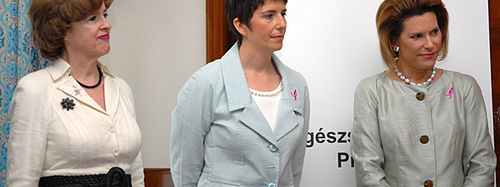





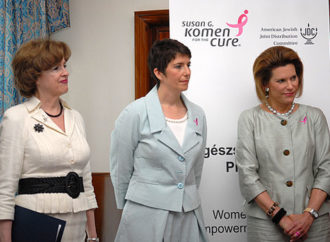
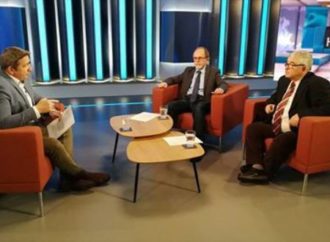





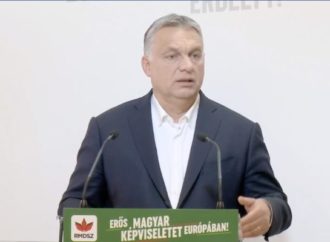








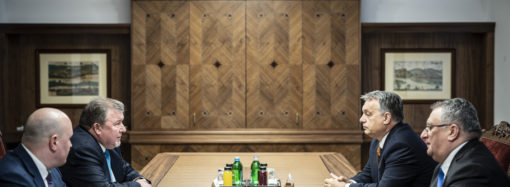



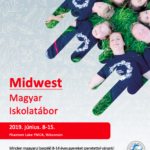



Leave a Comment
Your email address will not be published. Required fields are marked with *